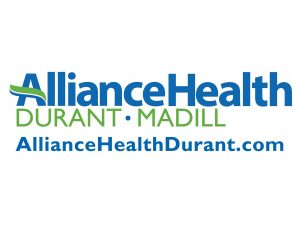AllianceHealth
DURANT – The new updated dietary guidelines from the American Heart Association focus more on your overall eating habits rather than a list of no-no’s. Taking in sufficient nutrients will support your heart health and general well-being over your lifetime. Research on dietary patterns have found 14% to 28% lower cardiovascular disease mortality among U.S. adults with high compared with low adherence to high-quality dietary patterns.
Filling your diet with whole, unprocessed foods brings the most benefit – fruits and vegetables, fish and seafood, low or non-fat dairy, nuts and seeds, lean meat and poultry. Minimize your intake of salt and added sugars, especially those frequently found in processed foods. Too much salt can increase blood pressure and too much sugar can lead to excess weight.
Amanda Hale, D.O., a Family Medicine physician with AllianceHealth Durant Clinics, appreciates the message of balance in the new AHA guidelines.
“Maintaining a healthy weight through a balanced diet and plenty of exercise has a big impact on your heart health. Indulging in a dessert or packaged food once in awhile is fine, the important thing is making these only an occasional, small part of what you eat overall.”
Beginning with our mother’s diet before we’re born, the food and drinks we take in from infancy through adulthood impact on our health over time. Helping your child develop healthy eating habits early gives them a strong foundation. Prevention of pediatric obesity is key to preserving and prolonging ideal cardiovascular health.
Focus on making every calorie you take in bring value. Adjust how much you consume based on your level of activity, reduce portions and calories if you are less active.
Simple changes can add up. For example, eat a piece of fresh fruit rather than drinking packaged, processed juice with added sugars. Buy bread or pasta made with whole grains rather than refined grains. If you regularly eat pasta, eat a smaller amount and add another vegetable to your plate. When you eat crackers, choose low-salt versions made from nuts, rice or whole grains.
“Poor diet quality can increase your chances for cardiovascular disease and worsen overall health. Make it a habit to take in nutritious food at every meal, whether at home or dining out. If you would like to learn more information about a healthy heart diet please ask your primary care physician.”
To find a physician or learn more about healthy choices for you, visit Alliancehealthdurantmadilldocs.com or call 580-924-3400.
AllianceHealth Durant offers a free e-newsletter with a monthly dose of health and wellness inspiration sent directly to your inbox from a trusted medical source. www.alliancehealthdurant.com/enewsletter- sign-up
AllianceHealth Durant is Southeastern Oklahoma’s largest hospital—a 138-bed licensed acute care facility offering a range of inpatient and outpatient services. AllianceHealth Durant’s quality of care has been recognized by respected agencies and national accrediting bodies. AllianceHealth Durant is an accredited hospital by the Joint Commission. AllianceHealth Durant also earned Advanced Certification as a Primary Stroke Center by the Joint Commission. For more information please visit alliancehealthdurant.com
AllianceHealth Durant is owned in part by physicians.


